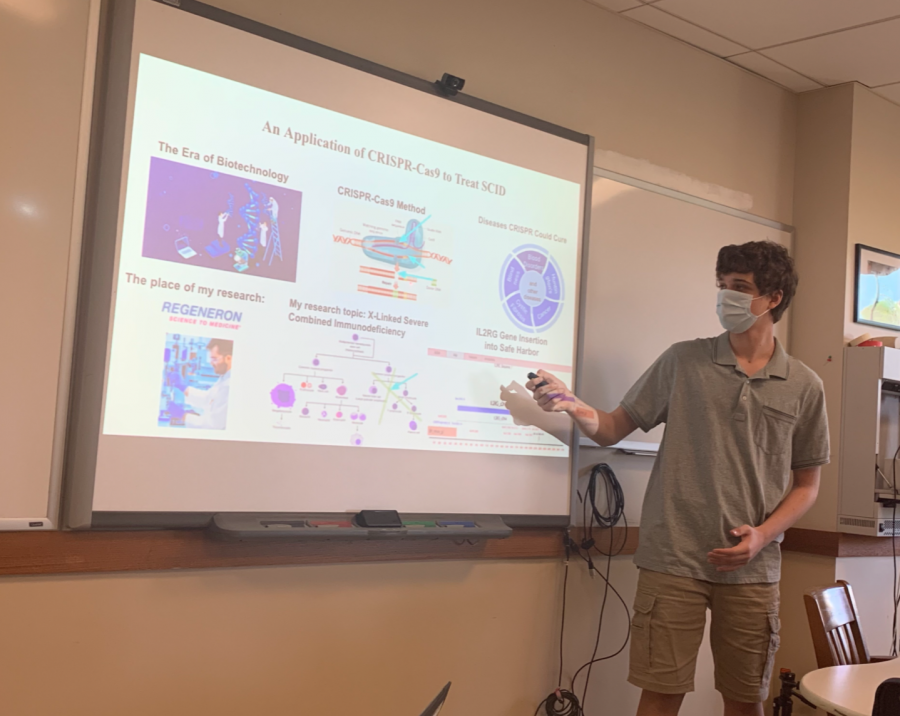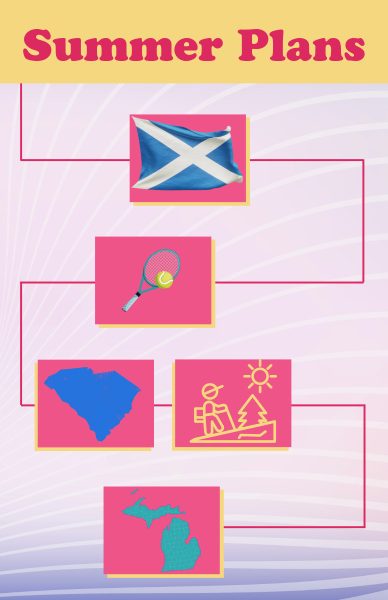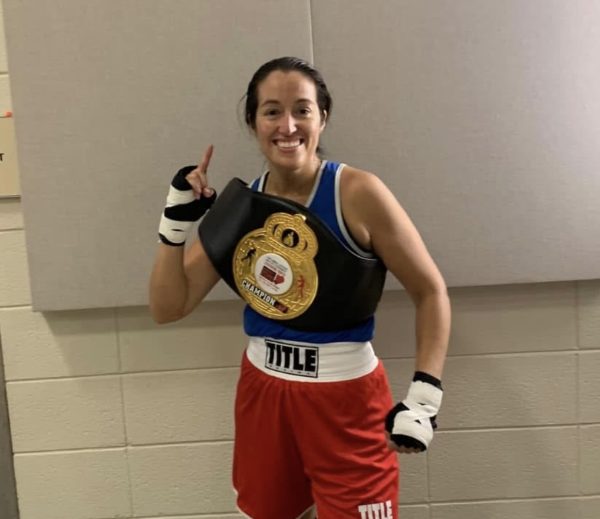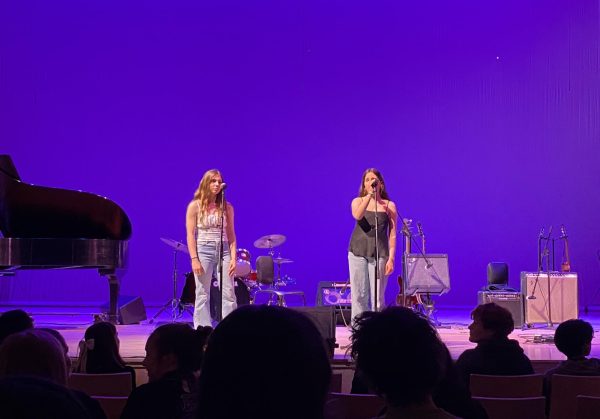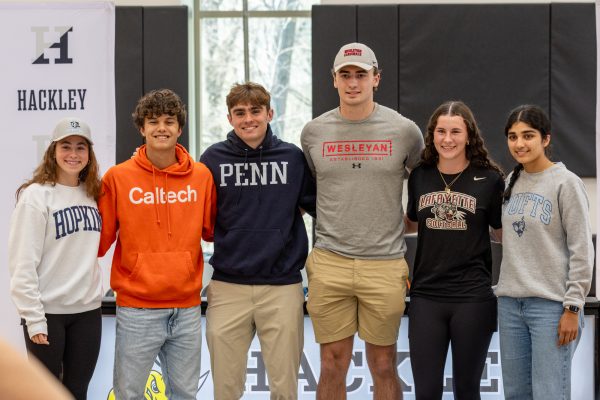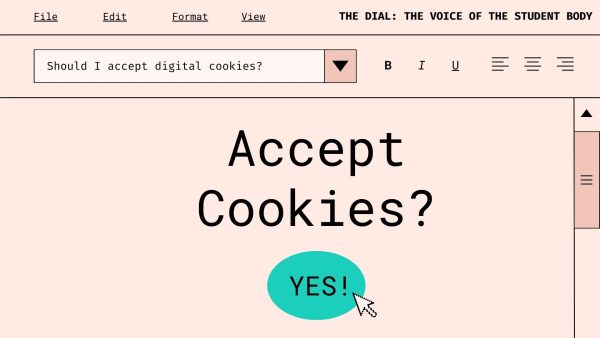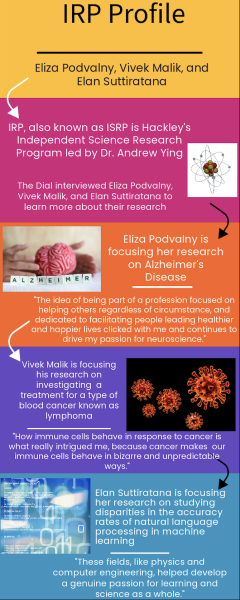IRP Provides Students Authentic Research Opportunities
Hackley’s Independent Research Program, or IRP, is a collegiate-level scientific research program that lets students pursue a topic that they are interested in learning more about. However, many students who aren’t in the program don’t know what actually goes on in the classroom.
According to Dr. Ying, who is the advisor of IRP, “It’s a program for students who are passionate about science to pursue a research topic that they choose.” There are 19 students currently enrolled in the program, but Dr. Ying says that this is growing every year due to increased interest in the program. Sophomore Ava Troso chose to join the program because “I have always been an inquisitive person. And what better way to merge my curiosity and admiration for science by taking the Independent Research Program!”
Students follow a topic that they are interested in for three years, going from sophomore year to senior year. Ava is researching “the effectiveness of a gluten-free diet for the remission of neurologic manifestations in patients with celiac disease.” She has Celiac Disease, and it took her 4 years to get diagnosed. The lack of awareness that was the reason it took so long for her to be diagnosed is the reason she wants to research this.
They also work on their research project in the summers of junior and senior years. Each summer, they commit 6 to 8 weeks to work on an internship with a mentor at a research facility off-campus. This work helps them receive the data for their project as they plan and execute experiments. According to the Independent Research Program website, “Ideally, the mentor and student find the experience mutually rewarding, so they can continue working together throughout the academic year in preparation for future experiments during subsequent summers.”
This summer, Ava will be taking part in a mentorship virtually. Her mentorship this summer is based at the Mayo Clinic, in Rochester, Minnesota. Her mentor will guide her to perform a meta-analysis experiment on the Neurological Manifestations of Celiac Disease, which she has.
Students start in sophomore year, and the program is very competitive. Typically, only 2-5 students are accepted each year, because it’s a program that requires a lot of teacher-to-student interaction in a class period. Classes are spent working on their projects, talking to mentors, and getting ready for the summer programs.
In 10th grade, the goal is to get students to determine their projects and what their focus is going to be, and to contact their potential mentors. According to the website, “The course focuses on basic skills associated with research, such as literature reviews, designing and conducting experiments, data analysis and presenting their results to an audience.” When the IRP students are in 11th grade, it gets more difficult and time-consuming, with students continuing their analysis and skills in presenting data, while simultaneously mentoring sophomores in the program. At the end of the year, students can present their research in local science competitions.
In the final course of the year, IRP 12, the students have lofty goals that they are expected to complete. These are to submit their research projects to regional, and even national competitions. This is a lot of work, and they also serve as mentors to both IRP 10 and 11 at the same time.
According to Ava, her favorite thing about IRP is the independence that comes with the program, and that she is able to talk with the older students in the program as well. “Hearing their input has been invaluable,” Ava said.”
Her biggest takeaway from the Independent Research Program is that she is learning not just how to execute a large-scale project, but life lessons also, including how to work hard and network.

